How do animals get the new coronavirus? Why are the symptoms different from humans? Movie explaining

Cases in which cats and tigers are infected with the new coronavirus have been reported, and cases in which humans have been infected with the new coronavirus from mink have also been confirmed. So, what is worrisome is, 'Why is the virus transmitted from animals to humans?' and 'Is the new coronavirus not dangerous for animals?' A movie of experts answering these answers is available on Vox's YouTube channel .
Why tigers get coronavirus but your dog will be fine-YouTube
A Maretola named 'Nadia' from the Bronx Zoo in New York has tested positive for the new coronavirus . It is reported that breeding staff infected with the new coronavirus is the route of infection.
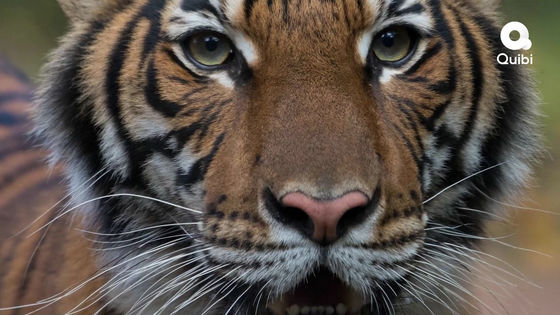
In addition to Nadia, it was reported that Nadia's sister, Azul, the same Malatera, two Amur tigers, and three lions had symptoms such as dry cough.

At the time of writing the article, Nadia had already been completely cured from the new coronavirus infection, but this case was a great reminder that the new coronavirus is a
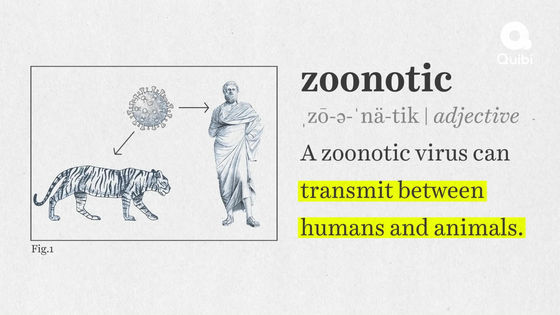
Several animals have been tested positive by the new coronavirus test since Nadia, and in April 2020 it was reported that

In May 2020, it was confirmed that cats were infected with the new coronavirus . Although pug was finally diagnosed as negative by detailed examination, it became widely known from several cases that animals were infected with the new coronavirus, and the situation led to a series of pet abandonment . ..

The question that comes to mind here is, 'How do pets get infected with the new coronavirus?'

This was answered by William Kalesch, director of the Veterinary Medicine Program at the

When the interviewer asks, 'I have a dog, do I need to worry about the dog?'

'No, you don't have to worry about dogs. Infections in dogs are extremely rare, and although dogs are infected with the new coronavirus, it seems that they rarely propagate in the body. There are cases where dogs have the new coronavirus by chance because they have had their owners for a long time,' says Kalesh.

Furthermore, Mr. Kalesh says, 'When a new coronavirus test was performed on a dog with very severe symptoms, it was not diagnosed as having an infectious disease although it possesses the virus.' .. He continued, 'However, cats seem to be at higher risk of being infected with the new coronavirus than dogs, and there are

In fact, the
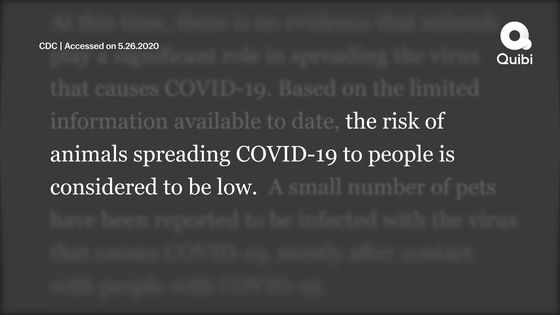
However, there are multiple cases of human-to-animal transmission of the new coronavirus, so researchers understand the mechanism in detail and ask, 'If a virus enters the body, what animal is most susceptible?' I'm trying to figure out?'

When a new type of coronavirus enters the body of an animal, it develops when

Not all animals are infected with the novel coronavirus equally, as intracellular ACE2 is subtly different in each animal. The new coronavirus is highly likely to bind to cells of humans, camels, cats, pangolins, and bats, but is unlikely to bind to cells of animals such as rats, rats, chickens, and guinea pigs.
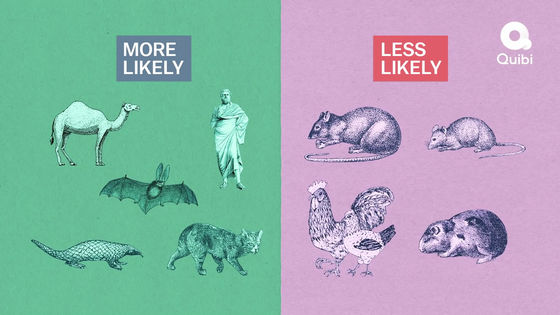
``For example, pigs do not get seriously infected with the new coronavirus, but it has been confirmed that intracellular ACE2 binds to the new coronavirus,'' Kalesh said. Even if infected with coronavirus, it does not become severe.

Next, as it is said that the new coronavirus occurred in the wholesale market in Wuhan, it is thought that 'the virus was transmitted from animals to humans'.

“I don't know what the origin of the new coronavirus is at the moment. However, there are many viruses that are very similar to the new coronavirus. It is a thing.'

In the first place, most of the viruses are of animal origin, for example, camels for colds. Most of the influenza comes from pigs and birds, and the
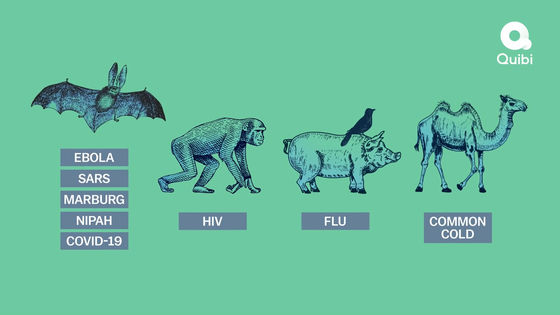
Regarding the point that viruses that cause many infectious diseases are transmitted from bats to humans, Kalesh said, ``Since there are more than 1400 species of bats, bats have many viruses as a whole. In addition, since bats are genetically closely related to humans, the virus that infects bats is also susceptible to humans.'
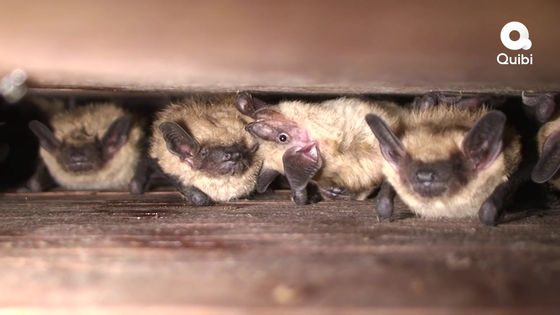
The interviewer asks, 'Why is it such that when a virus such as the new coronavirus infects humans from animals, it is fatal to humans when it is not so to the original host animals?' ......

'The animals carry viruses and bacteria in their bodies and have lived with them for thousands of years. When a virus that evolved in an animal over the years has infected other animals, , They can have very different reactions.'

The number of zoonotic diseases has increased over the last 100 years. On average, new zoonotic diseases occur every four months...

75% of it comes from animals.

'The zoonoses have been identified in the long history of human-animal symbiosis, and we call some of them

In the end, he said, 'We must not wait until the infection becomes a pandemic, and we must deal with it immediately.'
Related Posts:







